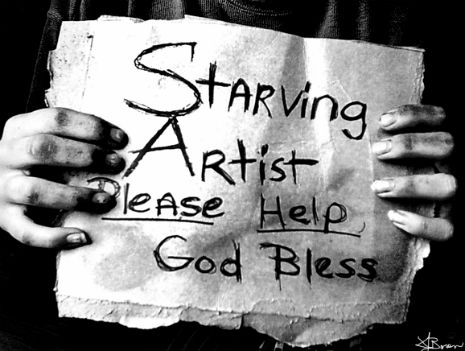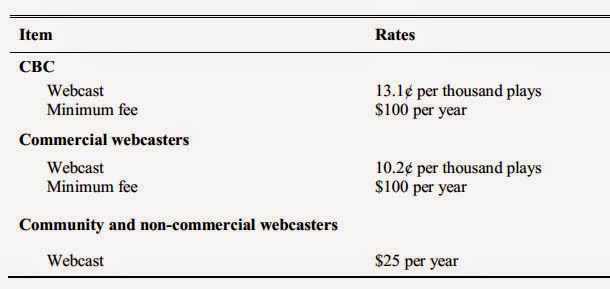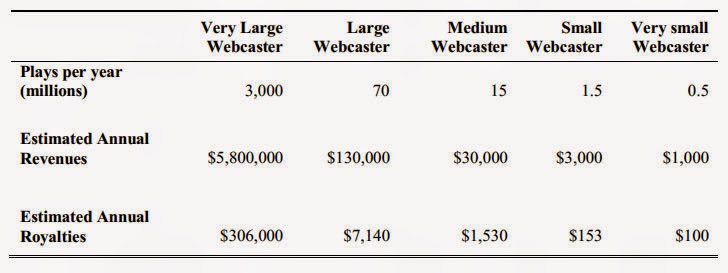
[Note: this article has been updated on July 21, to reflect further information on the Copyright Boards decision and Re:Sound’s opposition to Tariff 8]
There has been a lot of talk around The Copyright Board of Canada’s new royalty rates that will be standardized across Canada by online webcasting services such as Google Play Music, Last.fm, and Rdio.
The proposed Tariff 8 plan, which applies to non-interactive and semi-interactive webcasts for the years 2009-2012, was certified by the Copyright Board and outlined on May 17, 2014.
For those not familiar with Re:Sound, they are a Canadian-based, private, non-profit group authorized by the Copyright Act to administer all performance royalties of Canadian-based performers and their recordings. They have been assigned the job of collecting “equitable remuneration” for public performance or public telecommunications, and distributing them equally between the musicians and their respective recording companies.
The Board overturned rates originally negotiated by Re:Sound and record companies with digital services here in Canada. Despite evidence outlining key differences between webcasting and terrestrial radio and songwriters/publishers and producers, the Board held that North American standing rates are irrelevant in Canada, and ruled to base rates on the Commercial Radio Tariff it had previously set for songwriters/publishers for musical works played in terrestrial broadcasting.
What this means is that the rate will formalize one of the worst rates for online streaming in the western world.
To give you an idea of just how scant these rates are, a Canadian musician would require a total of about 10,000 plays just to earn enough to buy a box of Kraft Dinner.
For a 4 min song, this would mean the song would need to be played continuously for almost 4 weeks.
To buy an average home in the Greater Toronto Area (GTA) , a musician in Canada would need to receive 5.6 BILLION plays.
Compare this with Pandora, which streamed an average 58.5 billion songs over the year of 2013, it provides a stark outlook.
What this means is that for small niche genres such as classical music, the exploding internet streaming boom is all but a sad joke, where the service providers and subscribers walk away with near free content on the backs of the musicians (sound familiar?)
According to the popular online music website Reverb Nation, the top classical vocalist is currently Margaret Maye, at 1,213 plays. According to the Tarrif 8, her payday would result a whopping 6 cents for her and 6 cents to her record label. What this says, is that streamed classical music in Canada is essentially worthless.
One might think, “Okay fine, but there are still CD sales to help compensate artists.” Not really. It is no secret the recording industry is all but dead. In 2010, after selling only 1000 copies, Hilary Hahn’s album, “Bach: Violin and Voice,” debuted at No. 1 on the Billboard classical music charts. Promo for the CD included an appearance on the hugely popular “Tonight Show”, then hosted by Conan O’Brien. So if the Billboard No. 1 spot is the best it gets for a recording artist, so is selling a 1,000 copies.
“Around the world there is increasing concern about the ability of musicians to earn a decent living in the modern digital marketplace,” stated Graham Henderson, President at Music Canada. “The Copyright Board’s decision devalues the value of music… It also ignored existing, negotiated agreements which had pegged marketplace rates at what is current paid in the United States — rates, I might add which are nothing to crow about…. Let me ask a question: Do Canadian plumbers get paid wages equivalent to 10% of American plumbers? Teachers? Auto workers? Who? What profession receives compensation in Canada for their labour that is equal to 10% of the wages paid across the border. I will tell you who: NOBODY. So, why does the Copyright Board of Canada think this is okay to stick musicians with rates like this?”
According to Re:Sound, the non-interactive and semi-interactive webcast rates for 2009-2012 are as follows:
What makes this doubly insulting is comparing the rates to US counterparts. According to the board’s Fact Sheet, “In the United States, for 2012, the rate that webcasters must pay for the same rights when their sole business is webcasting is $1.10 per thousand plays”. So for the exact same service, the Canadian rate is demonstratively 90% lower.
The following table shows how much a webcaster would pay as a function of the number of plays it transmits per year. The very large webcaster is based on the Board’s estimate for Pandora; the large webcaster is based on the Board’s estimate for Songza. The very small webcaster pays the minimum annual fee of $100 set in this decision.
The Board estimates that under the new tariff, the CBC will pay about $36,000 in royalties for all of its webcasting operations, English and French. And with the CBC relying more and more on internet media, this number will become even more significant.
According to Music Canada, “The Board set the rates based on what it considered to be “fair and equitable”, but in doing so, discarded existing market rates at which digital music service providers had been operating in Canada.” […] “The resulting rates ignore international standards that support the growth and development of the industry in the world marketplace. Canada, in fact, stands alone among its major trading partners – including the United States, Australia, the United Kingdom, France and the Netherlands – in its adherence to a mandatory tribunal process that determines royalties without regard for what currently works in the marketplace.”
Much to the chagrin of a number of artists, labels, industry associations, and music fans who have started to speak out against Tariff 8, over seventy Canadian record labels and associations have been eager to support Re:Sound’s Application for Judicial Review of the Copyright Board’s Tariff 8 decision. To fight the initiative, a facebook page titled I Stand For Music has been created.
Michael Vincent
- THE SCOOP | Royal Conservatory’s Dr. Peter Simon Awarded The Order Of Ontario - January 2, 2024
- THE SCOOP | Order of Canada Appointees Announced, Including Big Names From The Arts - December 29, 2023
- Ludwig Van Is Being Acquired By ZoomerMedia - June 12, 2023





